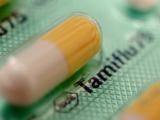Nov 24, 2009
Study revisits issue of lab origin for H1N1
After examining publicly available genetic sequences, virologist Adrian Gibbs and colleagues suggest in a study in Virology Journal today that the pandemic H1N1 virus may have been the product of a lab. In May the World Health Organization (WHO) examined Gibbs's assertions and said natural means were more likely. Gibbs told Bloomberg News today that, while genes from different flu strains may have mixed naturally to form novel H1N1, human involvement is "by far the simplest explanation."
http://www.virologyj.com/content/pdf/1743-422x-6-207.pdf
Nov 24 Virol J study
Registry tracks ECMO use in flu patients
A voluntary registry based in the United States shows that 107 patients who were critically ill with pandemic H1N1 flu have been treated with extracorporeal membrane oxygenation (ECMO), the Associated Press (AP) reported. Research at the University of Michigan on the registry is under way to assess the best candidates for the treatment. ECMO allows blood to bypass damaged lungs to allow healing.
http://www.nwcn.com/news/national/72301862.html
Nov 23 AP story
CDC confirms doctor had repeat H1N1
The Centers for Disease Control and Prevention (CDC) confirmed that a West Virginia pediatrician contracted novel H1N1 flu twice, in August and in October, according to the Charleston Daily Mail. Local labs had confirmed that Dr Debra Parsons had pandemic flu both times she was sick. Now more exacting tests from the CDC on both samples have confirmed the results. A state health official called this occurrence "very, very, very rare."
Japan reports flu-related brain swelling
Japan has identified 132 influenza patients who have developed encephalopathy, or brain swelling caused by an immune overreaction, according to Japan's Yomiuri Shimbun newspaper. This is triple the expected annual number. Patients ranged in age from 1 to 67, but most were under 15, with 7-year-olds most commonly affected. Three patients died. A senior health official said that flu patients who have slow responses or say "strange things" should see a doctor immediately.
Mexico receives first vaccine doses
Mexico's health ministry announced yesterday that it had received its first 865,000 doses of pandemic H1N1 vaccine, Agencia EFE, a Spanish news service, reported. The country's health secretary, Jose Angel Cordova, said officials will review the vaccine and administer the first doses this week to pregnant women and health workers. He said Mexico expects 30 million doses from Sanofi and GlaxoSmithKline by February 2010. Doses will go to states based on population.
http://www.laht.com/article.asp?ArticleId=347890&CategoryId=14091
Nov 24 EFE report
Ukraine to receive vaccine from WHO
The WHO said it would provide 5 million H1N1 vaccine doses to the Ukraine, the news service Interfax-Ukraine reported. The news came during a meeting between WHO officials and the country's president, the president's press service reported. Authorities from the WHO have been in the Ukraine to investigate a dramatic increase in respiratory illnesses, including severe cases and deaths. However, initial reports found no significant pandemic virus changes.
http://www.kyivpost.com/news/nation/detail/53469/
Nov 24 Interfax-Ukraine story



















